Mendel University in Brno
The origins of today’s Mendel University go back an entire century. The first efforts to establish a university of agriculture in Moravia date back to 1864. However, politicians at the time weren’t in favour of the idea, so the university had to wait to be established once independent Czechoslovakia was born following WW1. “There were concerns that the universities would be mainly about theory and the graduates wouldn’t have sufficient knowledge for everyday work in agriculture,” says Alena Mikovcová, co-author of a book on the history of the university.
These concerns were misplaced, it turns out. Enrolment has grown over the years – the first class of 182 students has gradually turned into a student body of over ten thousand, studying at four faculties. The range of subjects taught there has also expanded beyond agriculture and forestry to include economics, IT, and other disciplines as well.
In 1994, the university was named after Gregor Johann Mendel, the great personality of global science and the father of genetics.
Studying in the city and in the country
Mendel University was originally based in a large neo-classicist building in the Černá Pole (Black Fields) municipality. This was a great location for it, because back then the building was surrounded entirely by fields. Since its establishment, the campus of MENDELU has grown to become a modest exhibition of architecture from the last 100 years.
The Brno campus is lined with magical interwar villas, including the famous Villa Tugendhat. (Just try not to pay any attention to the high-rises from the socialist era right on the opposite side.) On sunny days, students like to spend time in an adjacent university arboretum or nearby Lužánky, the biggest park in Brno.
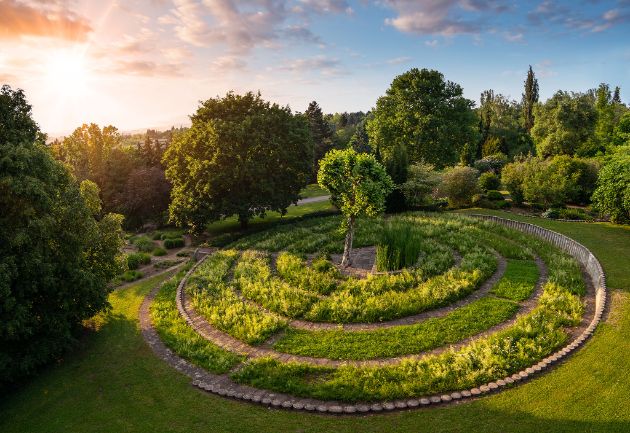
Not all the MENDELU sites are located in the city, though. One of the faculties is based in the village of Lednice, some fifty kilometres south of Brno. The students of this Faculty of Horticulture verify their theoretical knowledge in the university fields and get some fresh air in a vast and beautiful UNESCO-protected chateau park or among local vineyards.
And the students and teachers of the other faculties often leave their classrooms to visit sites scattered all over #brnoregion as well:
- The University farm in Žabčice located south of Brno is where mainly future livestock specialists and agronomists get real-life experience. And even lovers of horses and steaks, as there’s a set of beef cattle raised for meat (unique for Central Europe) with 16 breeds, with hundreds of animals each, and Kája the dairy cow who won the National Competition of Holstein Friesian Cattle.
- The Masaryk Forest Training Entreprise in Křtiny cultivates over 10 thousand hectares of forests north of Brno. Here, mainly the students of the Faculty of Forestry and Wood Technology learn to work in forests and take care of them. There are three arboretums with collections of woody plants from all over the world, open to the public as well. And before Christmas, the enterprise sells truly local eco-friendly Christmas trees obtained during necessary prunings of local forests.
- The Josef Ressel Centre in Útěchov is a major base for the Central European research of lumbering. Among other things, local researchers aim to reveal here various properties of wood as well as convince the public that wood is an eco-friendly, quality, and prospective material.
Agronomists, economists, and even artists
The days when Mendel University was purely devoted to agriculture (and later forestry) are long gone now. Today, it offers over 75 study programs, and over 95% of its graduates continue to use the knowledge gained in their jobs.
At the Faculties of Agriculture and Forestry and Wood Technology, students discover the mysteries behind cultivating cereals and forests in climates outside of the local, mild one. Together with the Czech Development Agency, MENDELU has been teaching farmers in Africa to prevent desertification and cultivate and process new plants since 2016.
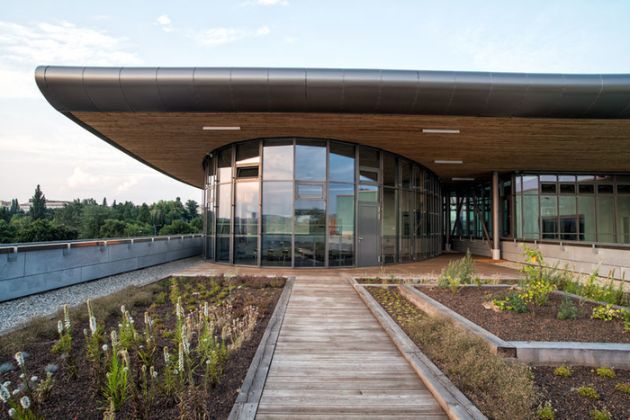
At the Faculty of Forestry and Wood Technologies, students learn to work with a chainsaw as well as design and produce furniture or build things from wood. After all, where else should you learn all there is about wood, right?
Among the graduates of the Faculty of Horticulture are gardeners, winemakers, garden architects and florists. And the Faculty of Business and Economy is where future economists, managers, financial experts and IT specialists study.
In #brnoregion, we love good drinks and food, and MENDELU is no different. This is especially true at the Food Technology Institute, which has its own bakery, confectionary, malting plant, brewery, as well as dairy and meat processing facilities. Have you ever tasted turnip, Jerusalem artichoke, or mizuna? Every year, the Faculty of Horticulture holds tastings of vegetable salads made of non-traditional types of vegetables. And of course, let’s not forget about the wines made at the university and sold in the university winery.
From and into the world
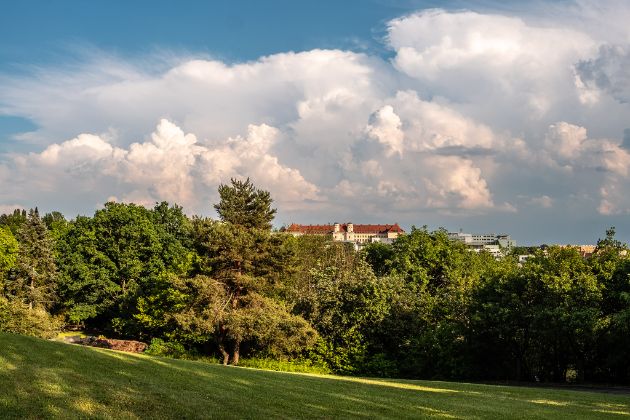
In 1923, there were 552 students, out of which 274, i.e. almost one half, were foreigners! The ratio of foreign students has been dropping ever since, but in 2018 there were 1,628 foreigners studying at MENDELU, which is around one fifth of the total number of students.
The relations with foreign countries are supported by the Faculty of Regional Development and International Studies as well. Apart from socioeconomic and environmental seminars, students learn about globalization, geography, and geopolitics, giving them tools to become successful at a wide range of jobs dealing in international development.
However, if you study at MENDELU and feel that #brnoregion is a bit too small for you, you can always leave for one of the following countries:
- Mongolia to explore which groups of larches, growing alone in the Mongolian desert, are able to survive even in extremely dry conditions, living only on dew;
- Utah, USA, to find out more about the world’s largest living organism – the Pando forest, formed by clones of quaking aspen which spreads through vegetative reproduction;
- South America to fight deforestation of the Amazon rainforest;
- Socotra island to build tree nurseries for local endemic plants that grow slowly but then suddenly die, mainly due to more frequent and more destructive cyclones;
- Cambodia to introduce cultivation of agricultural plants in the agroforestry regime to prevent massive deforestation and maintain biodiversity;
- Ethiopia to build a permaculture centre in order to improve the environment as well as the economic situation of local farmers.
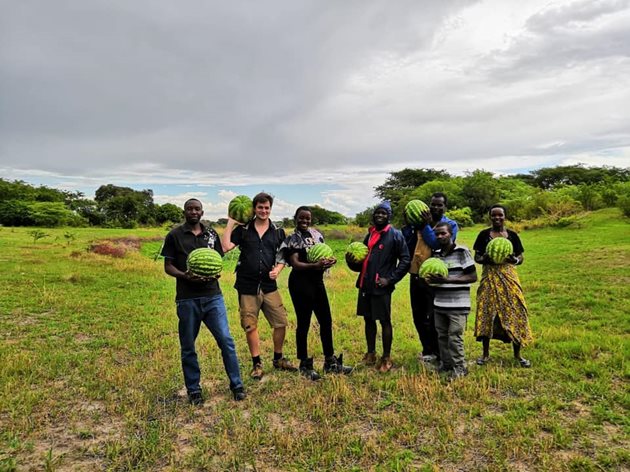
Age is only a number here
The students at Mendel University could be twenty or even eighty years old. They may attend courses of lifelong learning education or the University of the Third Age at the Institute of Lifelong Learning. Here, foreign students may also attend lessons of Czech.
At MENDELU, there is also the Mezigenerační univerzita (Intergenerational University), which supports the relations between grandparents and grandchildren through education and experiences. The seniors and their grandchildren (aged 9 to 13 years) are offered an opportunity to watch the world through a microscope, learn to plant orchids, or prepare their own herbal mixture against a cold.
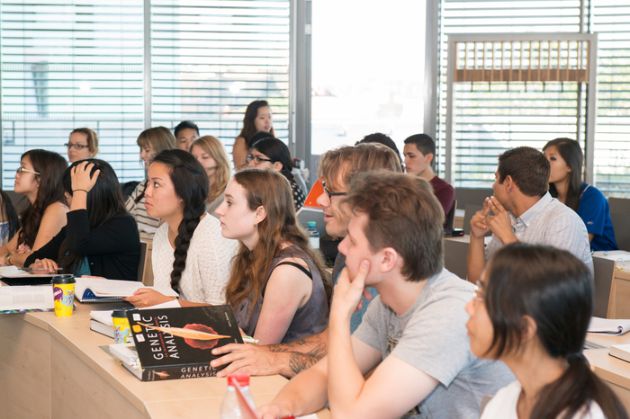
A true students’ club
In 1969, the Green students’ club was established in Brno and was one of the very first clubs of this kind in the Czech Republic, and it’s been open ever since. It is sponsored as well as operated by the students. Its management is replaced every three years, so the club is a living organism full of lasting energy and (let’s be honest) fluctuating quality – the focus of the club, assortment, and program all change based on who’s in charge. Years ago, it was the site of dance parties, later replaced with informal lectures by experts, and today it’s all about pub quizzes and beer pong.
And why is it called Green? In the past, it was where mainly students of the Faculty of Forestry and Wood Technology went to have some fun; today, though, the students from all the universities in Brno enjoy its atmosphere.
